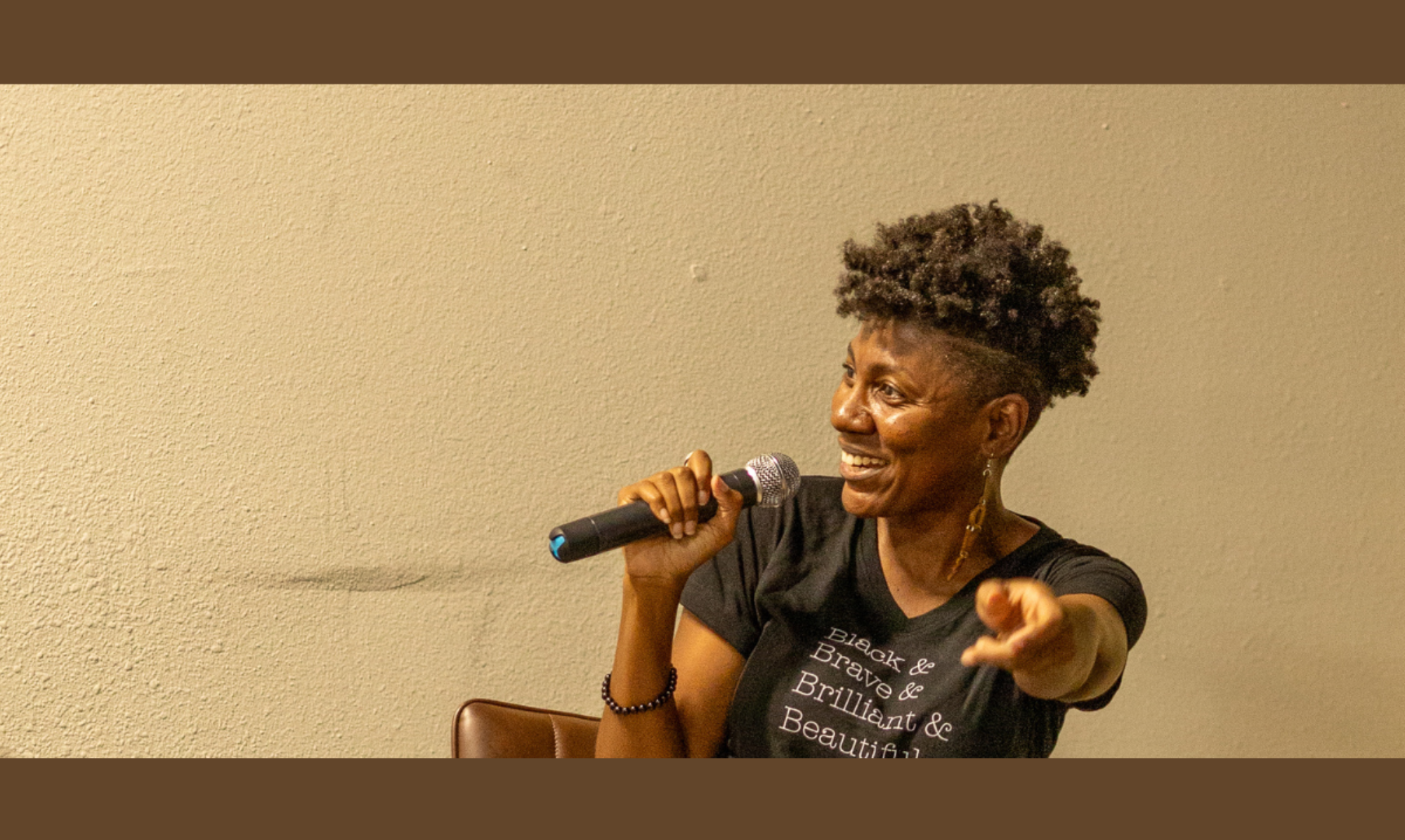by Elizabeth Upshur
My mother has a map of moles and freckles along her cheek, down the swath of her neck and her deep brown skin, and like the Milky Way’s constellations capturing spinning single stars into the mythology of the world, come my father’s moles, and the freckles around his hazel eyes on his paper bag cream skin. My mother told me, only once, how she was afraid to meet her future mother-in-law whose skin was whiter still, what if she raised her eyebrows at her? Cocked her head to the side as her nose wrinkled up at the thought of her bloodline regressing back into the explicit Blackness, the most undesirable part of herself?
I can hear my mother’s heartbeat in her mouth when she tells this part of constellation, and she breathes again when she says that it wasn’t like that, that this story has no maternal, or paternal, interference that leads to a Romeo and Juliet ending. But this is the foreshadowing of what opening door #3 looks like, that just because there is a prize at the end doesn’t mean everyone thinks you deserved that prize, or happiness in general. That in dating, in love, in life, all skinfolk, ain’t kinfolk. All the ones who look like us aren’t always for the rainbow of us; onyx, caramel, ebony, coffee, mahogany, cedar, honey.
It is more complicated than that. More complected, as my darkskinned art professor used to say as we slipped through the glossy model slides in Modern Art. When color becomes not just a number in paint (025028), but the claimant for a history of light and dark, good and evil, good versus evil, holy and unholy, beautiful and monstrous, masculine and feminine, and even those pairings conjured up the colors white and black, in just that order. So how can anyone falling from the goodness and rightness of whiteness be worth anything? Every rung away from that elevation is the fall, a failing, a fundamental difference in how you will be treated in the social sphere, the workplace, the political landscape, even permeating your innermost imagination. Once there, it snakes and twists and turns into the fertile soil of your imagination, and you’ll dream of it, and speak of it, your tongue a firebrand and lashing, causing gnashing of teeth and scars on other Black folks. Team Darkskin, Team Lightskin, Team Brownskin.
Beyonce chose a side, the only side she could: her daughter’s. And those are the only two examples of dark skin being accepted, with all of the addendums we’ve collected through the centuries in America, accepted unconditionally, affirmed completely, and that changed the course of history, both for me personally and for Black girls globally. Now we can shade our selves like morning glories to protect our cells from cancer, not from the fear of walking through society two shades darker.

Elizabeth Upshur describes herself as a Black Southern poet. She holds an MFA from Western Kentucky University and her work can be found in Mistake House, Pomona Valley Review, and Red Mud Review.
